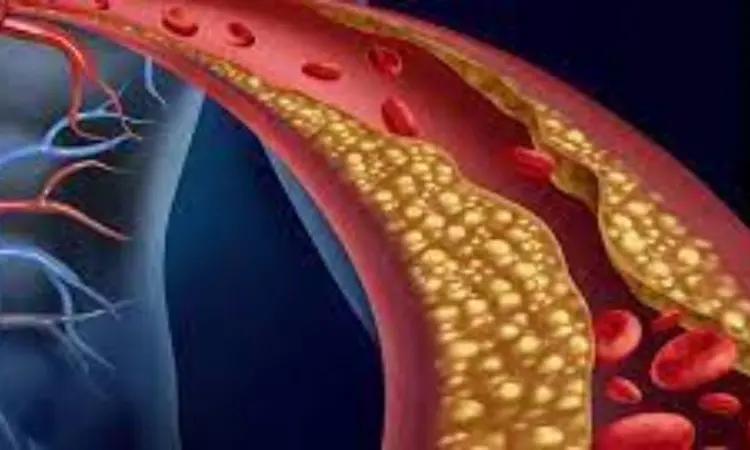
REMAIN-2 Trial Reveals Long-Term Safety And Efficacy Of Recaticimab In Patients With Non-FH And Mixed Hyperlipidemia
- byDoctor News Daily Team
- 18 February, 2025
- 0 Comments
- 0 Mins

China: A recent study has shown the long-term efficacy and safety of add-on recaticimab as a treatment option in patients with non-familial hypercholesterolemia (non-FH) and mixed hyperlipidemia not adequately controlled on stable statin therapy. The findings from the REMAIN-2 study were presented at the American Heart Association (AHA) 2023.
Recaticimab is a new PCSK9 inhibitor that can be injected every one to three months. It represents a novel and innovative approach in cardiovascular therapeutics as a long-acting monoclonal antibody (mAb) targeting proprotein convertase subtilisin/kexin type 9 (PCSK9). It belongs to the immunoglobulin G1 (IgG1) class that modulates PCSK9 activity and contributes to the expanding landscape of therapeutic interventions for hyperlipidemia and cardiovascular health.
The REMAIN-2 trial is a multicenter, phase 3, double-blind, randomized, placebo-controlled study conducted in China that aimed to evaluate the long-term safety and efficacy of recaticimab (SHR-1209), as an add-on therapy for patients with non-FH and mixed hyperlipidemia.
The study included 689 participants (mean age 56 years; 64% men) with non-familial hypercholesterolemia and mixed hyperlipidemia not controlled by ongoing moderate or high-intensity statin therapy.
Participants were categorized into three groups: one which received 150 mg of recaticimab or a placebo injection every four weeks, the second group received 300 mg of recaticimab or a placebo injection every eight weeks, and the third group received 450 mg of recaticimab or placebo injection every 12 weeks. The primary efficacy endpoint was determined as the percentage change from baseline to week 24 in calculated LDL-C levels.
The researchers reported the following findings:
Participants who received recaticimab, regardless of dosing level, had lower bad cholesterol levels at 24 weeks than those receiving a placebo. These levels were maintained at 48 weeks.
Bad cholesterol was reduced by 62% among those taking recaticimab in the four-week injection group vs. 0% among those in the placebo group, and reduced by 59% vs. +0.4%, respectively in the 8-week group.
In the 12-week injection group, bad cholesterol was reduced by 51% vs. +2%, respectively.
Recaticimab demonstrated a comparable safety profile to placebo, with a similar amount of injection site reactions, including soreness and redness, common across both groups during the 48 weeks.
Other types of lipids like lipoprotein(a) and apolipoprotein B were also reduced significantly in the recaticimab groups compared with the placebo groups.
"Our findings provide encouraging evidence for the safety and effectiveness of recaticimab as an add-on therapy for non-familial hypercholesterolaemia and mixed hyperlipidemia," the researchers wrote.
"Recaticimab achieved a comparable reduction in essential lipid parameters as other PCSK9 inhibitors, offering additional confirmation of significant treatment benefits, even with a less frequent dosing schedule," they concluded.
Disclaimer: This website is designed for healthcare professionals and serves solely for informational purposes.
The content provided should not be interpreted as medical advice, diagnosis, treatment recommendations, prescriptions, or endorsements of specific medical practices. It is not a replacement for professional medical consultation or the expertise of a licensed healthcare provider.
Given the ever-evolving nature of medical science, we strive to keep our information accurate and up to date. However, we do not guarantee the completeness or accuracy of the content.
If you come across any inconsistencies, please reach out to us at
admin@doctornewsdaily.com.
We do not support or endorse medical opinions, treatments, or recommendations that contradict the advice of qualified healthcare professionals.
By using this website, you agree to our
Terms of Use,
Privacy Policy, and
Advertisement Policy.
For further details, please review our
Full Disclaimer.

Recent News
Normal-Tension Glaucoma Closely Associated With Co...
- 10 October, 2022
Air Pollution Tied To Increased Risk Of Premature...
- 24 May, 2023
NEET PG 2024: NBE Opens Pre-Final Edit Window
- 30 May, 2024
NMC Mulls Over Removal Of Upper Age Cap In MBBS En...
- 30 November, 2021

Daily Newsletter
Get all the top stories from Blogs to keep track.


0 Comments
Post a comment
No comments yet. Be the first to comment!